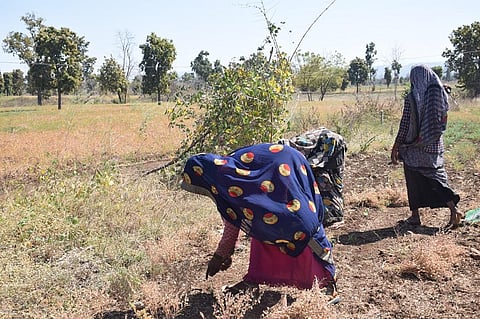

The Supreme Court of India (SC), in a matter pertaining to the constitutionality of the Forest Rights Act, 2006 (FRA), directed the states on February 13, 2019, to evict those FRA claimants whose Individual Forest Rights (IFR) claims were rejected.
With around 0.5.4 million claims rejected after the review process in 14 states by 2020, the fate of the individuals from Scheduled Tribes (ST) and Other Traditional Forest Dwellers (OTFD) hangs in the balance.
While the order was passed for 1.1 million people in 20 states in 2019, the number of rejected IFR claims has risen to 1,688,496 by November, 2022.
Will these 1.688 million people be evicted from their ancestral lands?
While the Supreme Court can give orders to evict people whose claims have been rejected, FRA or The Scheduled Tribes and Other Traditional Forest Dwellers (Recognition of Forest Rights) Act, 2006 talks about giving the titles to the STs and OTFDs. The Act doesn’t talk about the eviction of individuals if the claims have been rejected; hence the order will only dilute FRA, said Y Giri Rao, executive director of Vasundhara, an NGO working on FRA in Odisha.
Rao told Down To Earth:
If worst comes to worst, these claimants can continue living there and the department that owns the land — forest or revenue — can file cases against them and move to the court stating that these individuals are encroaching upon their land under the Orissa Prevention of Land Encroachment (Amendment) Act or Odisha Forest Act.
“Once they move to the court, the individuals will have another chance to prove that they have been occupying the land for generations. There are similar laws regarding encroachment of land in all states which can be used for the claimant’s advantage,” said Rao.
But how many of these people will have the resources or the knowledge to challenge the SC’s order still remains a big question.
Along with eviction, food security will become a big issue if the claimants are evicted from their ancestral land.
“These communities depend on the forest for their survival. They cultivate small patches of land for personal use and depend on minor-forest produce for nutrition,” said Rao.
If the forest department decides to do afforestation, these landowners will have no land and will have to migrate out of their traditional forests. The SC’s order has diluted the FRA, he added.
CR Bijoy, an independent expert on FRA, based in Coimbatore, said if the review process is not done in accordance with the FRA guidelines, as the Ministry of Tribal Affairs had submitted before the SC, it will amount to an offence under section 7 of the FRA and contempt of court.
Section 7 of the FRA states that when any authority, committee, their officers or members contravene any provision or rule of the FRA concerning the recognition of forest rights, action can be taken against them for the same. They can even be fined.
“While submitting the number of finally rejected claims, the state government will also have to mention the procedure that was followed to review rejected claims,” said Bijoy.
The review process begins at the Gram Sabha, as per FRA and if the state government says that this was followed when it actually didn’t happen on the ground, the other parties will have to challenge this and they can talk about procedural flaws.
The SC judges will ask the state government to respond to it and the process will get delayed further, he said.
Bijoy added that if the state governments tell the SC that however many claims have been reviewed and finally rejected, the SC can ask for the eviction of these people. But for this, the states will have to find out the number of people who will face eviction after examining the cases individually.
“As per the legal definition of evacuation, it means that they are removed from the land they have occupied. They can only be physically removed from the place if they are physically present there,” said Bijoy.
The states will have to submit before the SC the number of IFR claims finally rejected and the actual number of cases where eviction will happen after examining these claims on a case-to-case basis, he added.